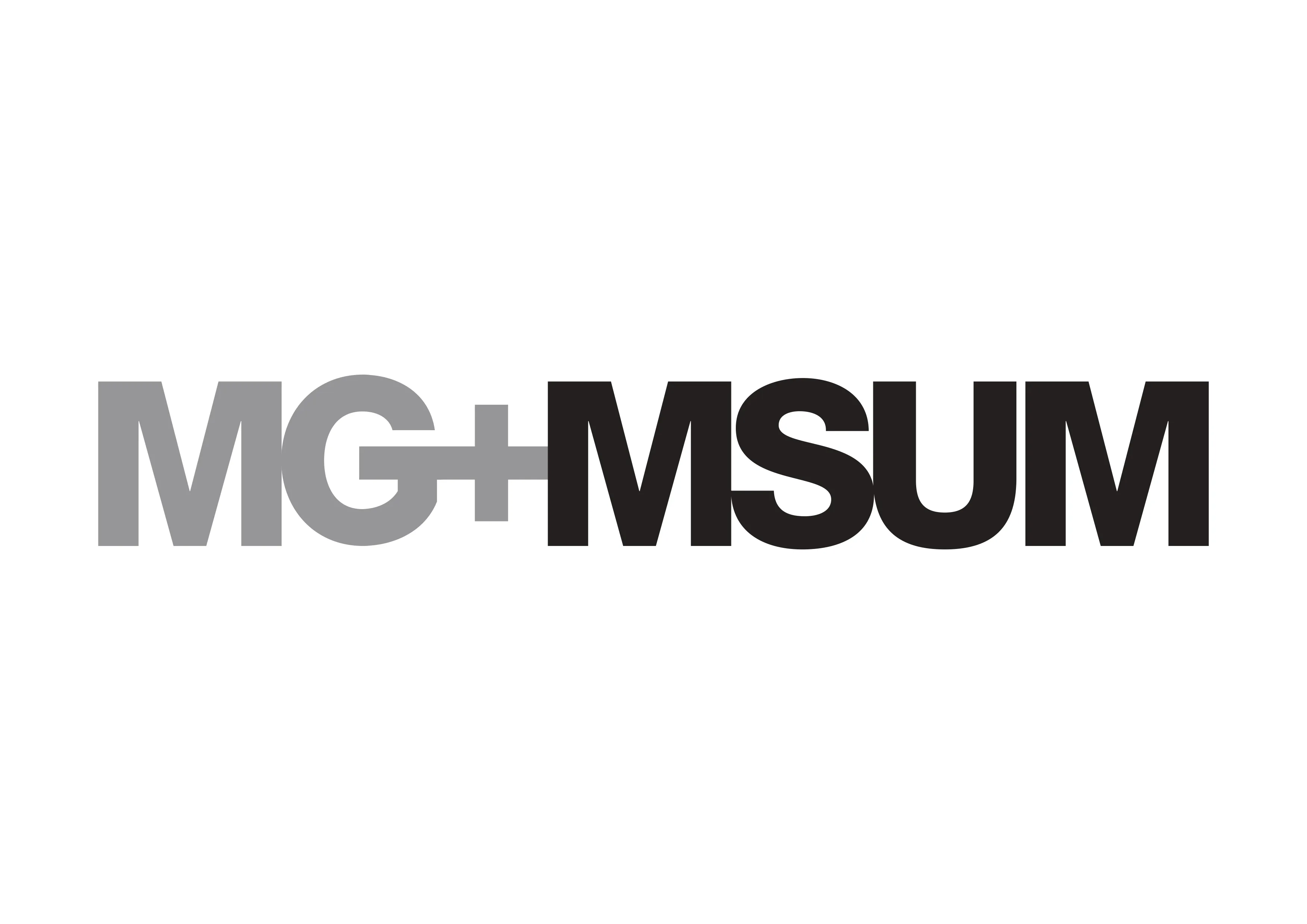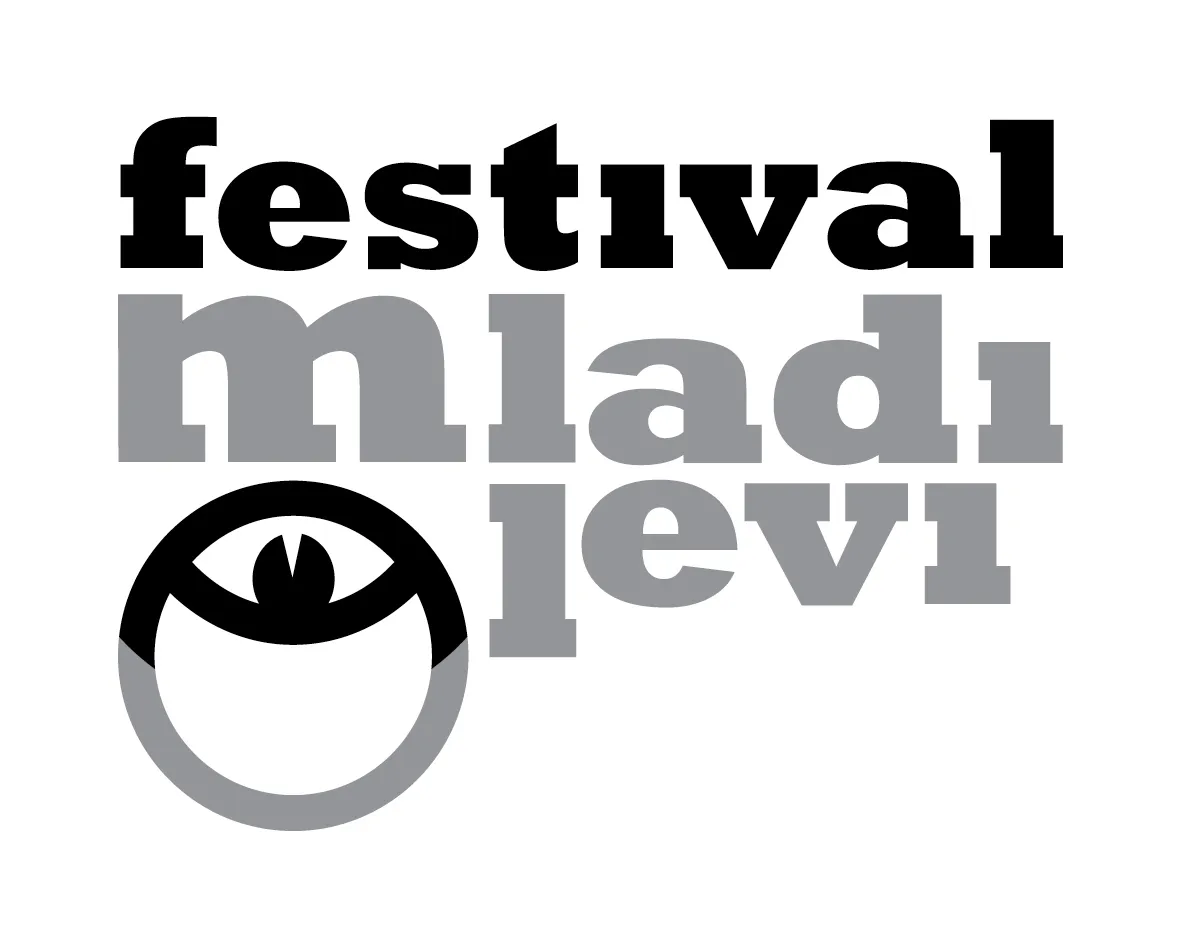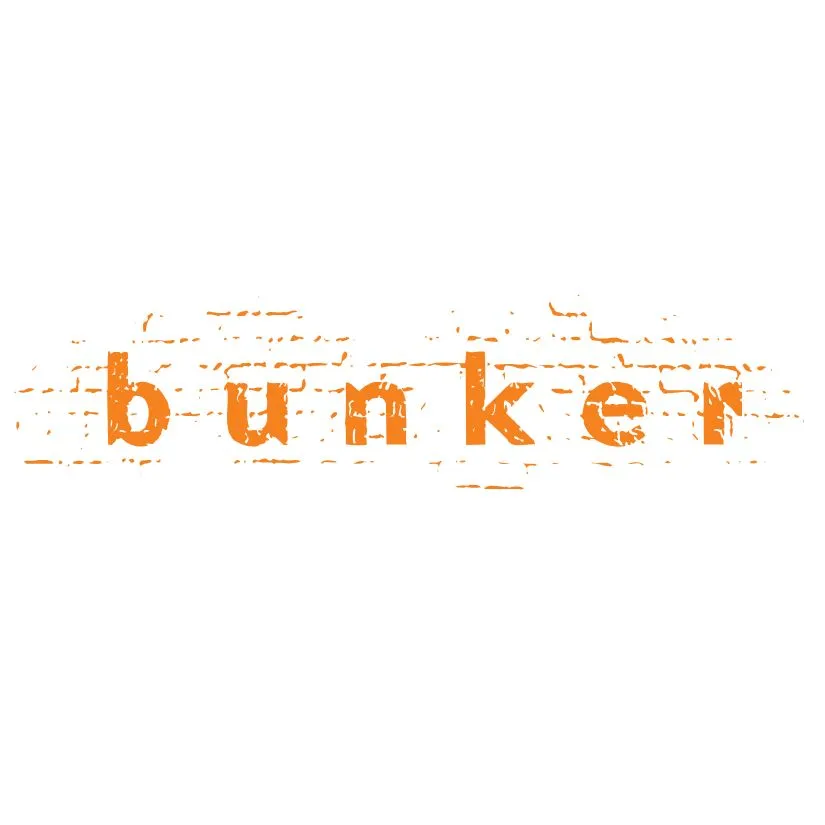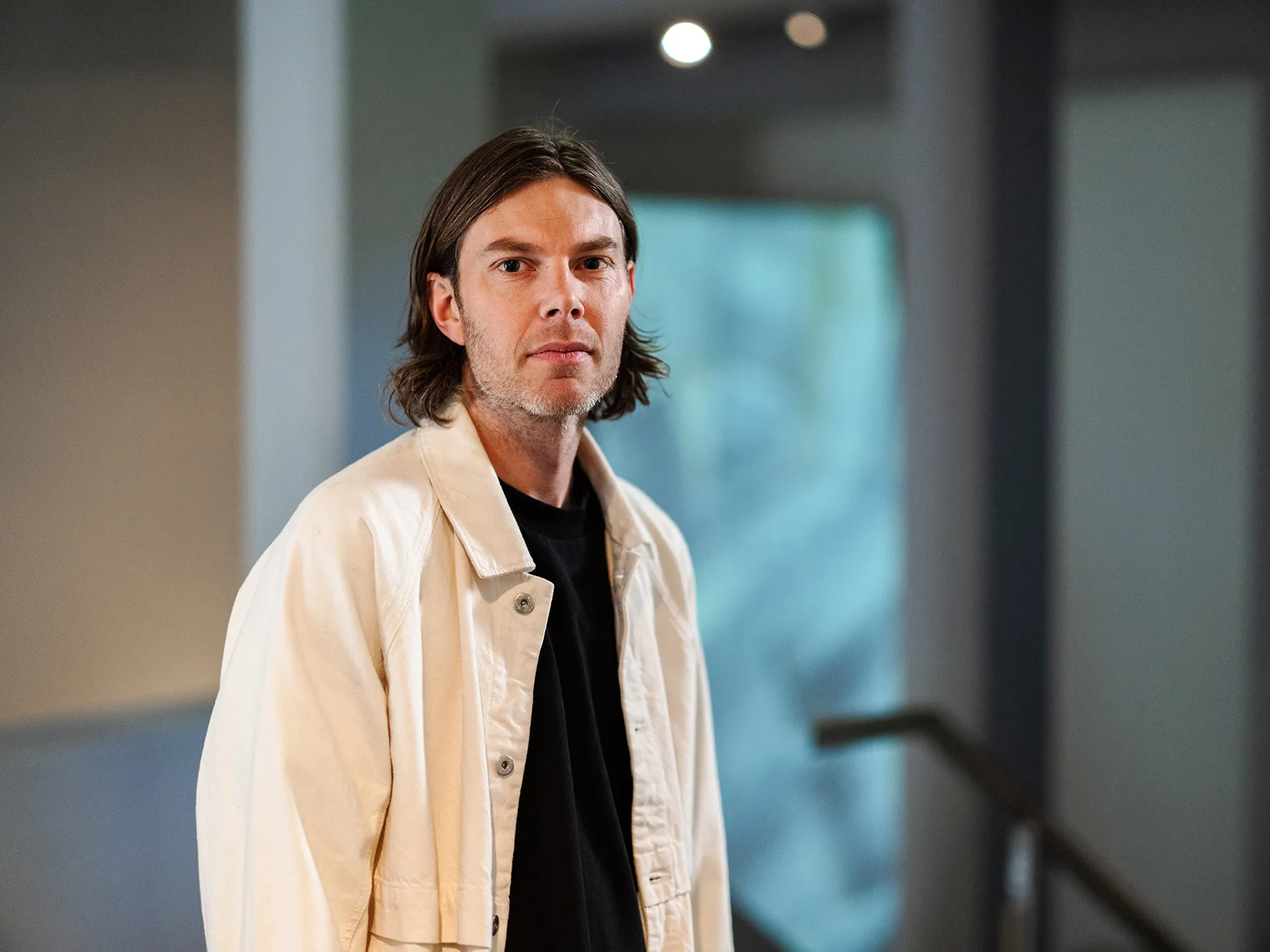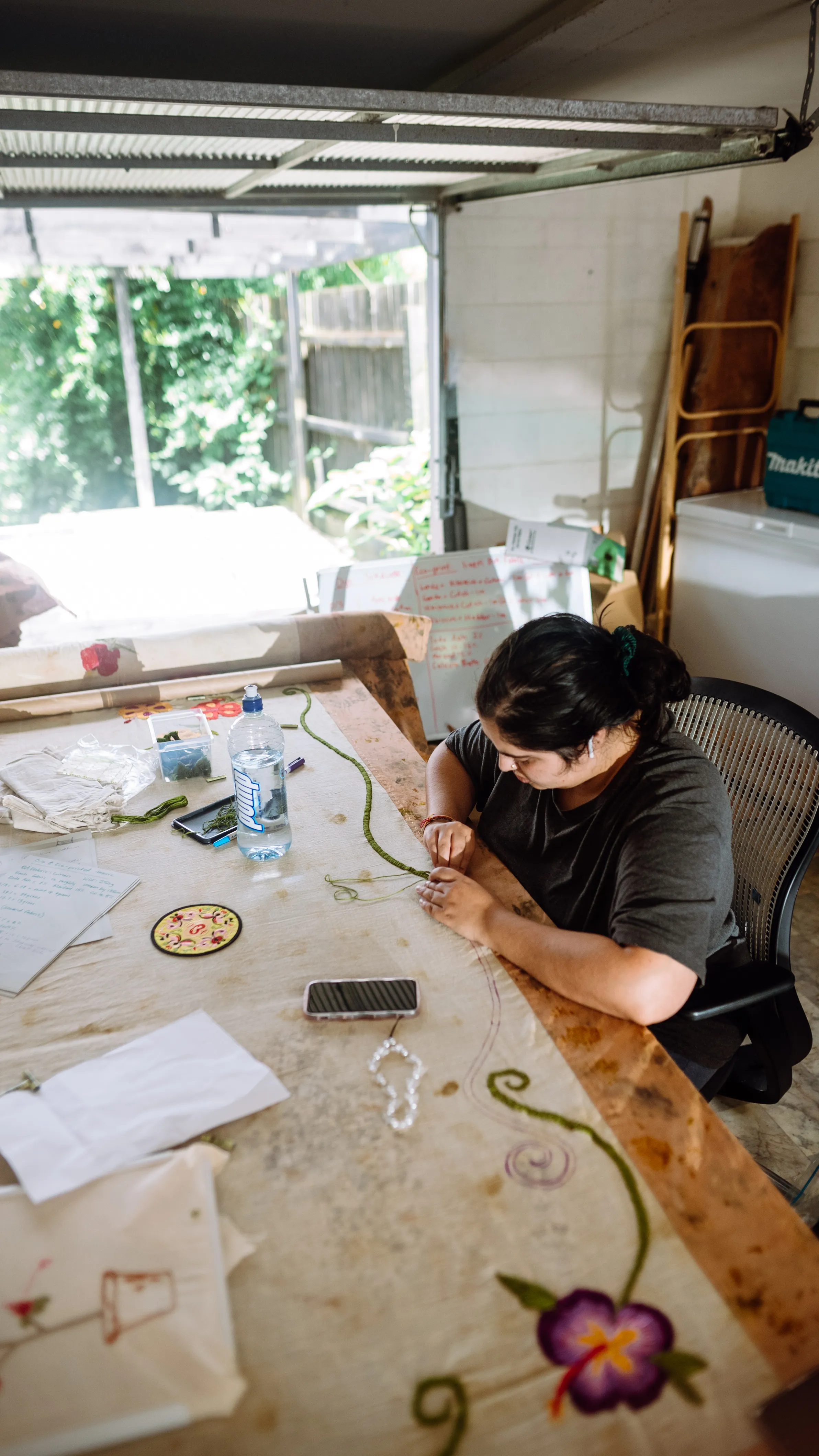Summer School | Revolutionary Roads. Destination: Comradeship
Matthew Galloway and Quishile Charan were selected from more than 15 applicants from Aotearoa New Zealand to participate in the 4th edition of the Summer School | Revolutionary Roads Destination: Comradeship. Matthew's attendance was supported by a grant from the Office for Contemporary Art Aotearoa and Quishile's attendance was supported by Tautai Contemporary Pacific Arts Trust, through their new Artists Across Borders initiative. The Summer School took place in Slovenia, Serbia and Montenegro and was organized jointly by the Moderna galerija (Ljubljana), the Museum of African Art (Belgrade), and the Museum of Contemporary Art of Montenegro.
The summer school offered 28 participants from 21 countries a nomadic learning experience, traveling through three cities in the Balkans—Ljubljana, Belgrade, and Podgorica—while exploring the legacy of Yugoslav socialism, solidarity work actions, antifascist monuments, and the cultural connections of the Non-Aligned Movement. This journey included lectures, workshops, discussions, and performances, with a special focus on “locally situated knowledge.” The participants engaged with three distinctive museum collections that challenge traditional Western-centric art histories and canons.
Te Whanganui-a-Tara based , Matthew Galloway, and Tāmaki Makaurau based Quishile were selected by the Summer School organisers, from more than fifteen applicants from Aotearoa NewZealand, who the selectors noted were of a very high standard. They joined 26 artists from more than 20 countries, for the 8 day Summer School.
About Matthew Galloway
An interdisciplinary artist, Matthew’s work operates within a documentarian and historiographic mode, engaging critically with social, political, and environmental issues through the tools and methodologies of design.
Matthew commented “Much of my recent work has centred on resource extraction and power dynamics within industrial systems, with an emphasis on questioning the colonial and capitalist frameworks that shape them. The opportunity to participate in Revolutionary Roads. Destination: Comradeship provides a deeply valuable context for expanding this research. I am excited to see how the themes of this program play out across different locations, and to learn from the participants and facilitators involved.”
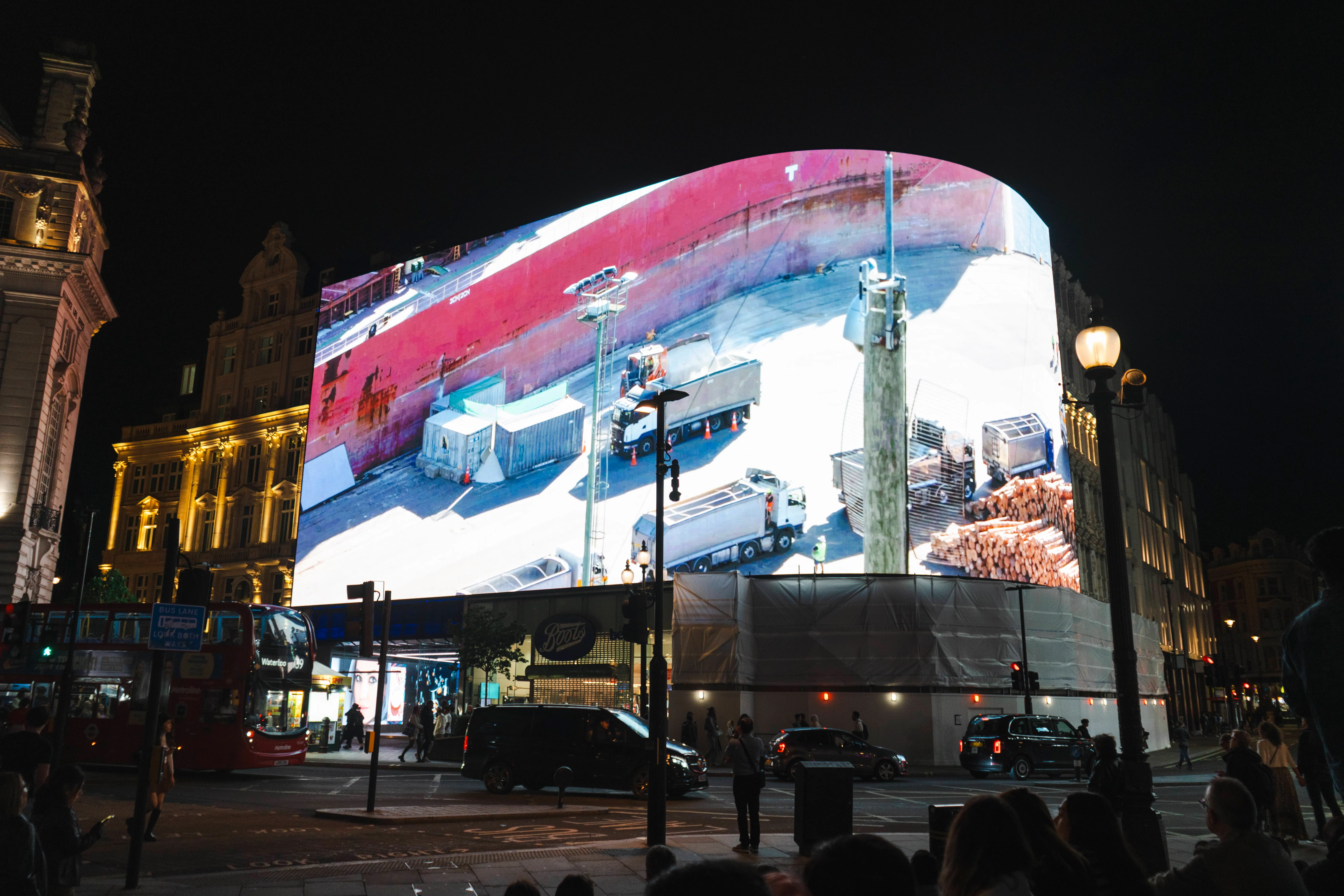
These research themes are seen in two of his ongoing bodies of work. Empty Vessels, produced in collaboration with Sahrawi artist, Mohamed Sleiman Labat, directly addresses Aotearoa New Zealand’s ongoing reliance on phosphate rock (used for the production of fertilisers) mined from occupied Western Sahara. By tracing the movement of phosphate-carrying ships and counter-surveilling infrastructures of oppression, the project seeks to amplify subjugated voices and present alternative ways of understanding and resisting systems of extraction. This collaborative work highlights the importance of solidarity and dialogue, aligning strongly with the ethos of the Non-AlignedMovement explored by the Summer School program.
Similarly, Matthew’s project The Power that Flows Through Us investigates the socio-political context surrounding the Clyde Dam, a monument to the infrastructural ambitions of mid- century New Zealand politics. This research examines the hydro dam as a political site, asking what memories it holds, and considering the way such State infrastructures continue to govern everyday life.
Matthew is a current doctoral candidate at Elam School of Fine Arts, and a Teaching Fellow at The School of Design Innovation, Wellington Faculty of Architecture and Design Innovation, Victoria University. He is represented in Aotearoa New Zealand by Sumer.
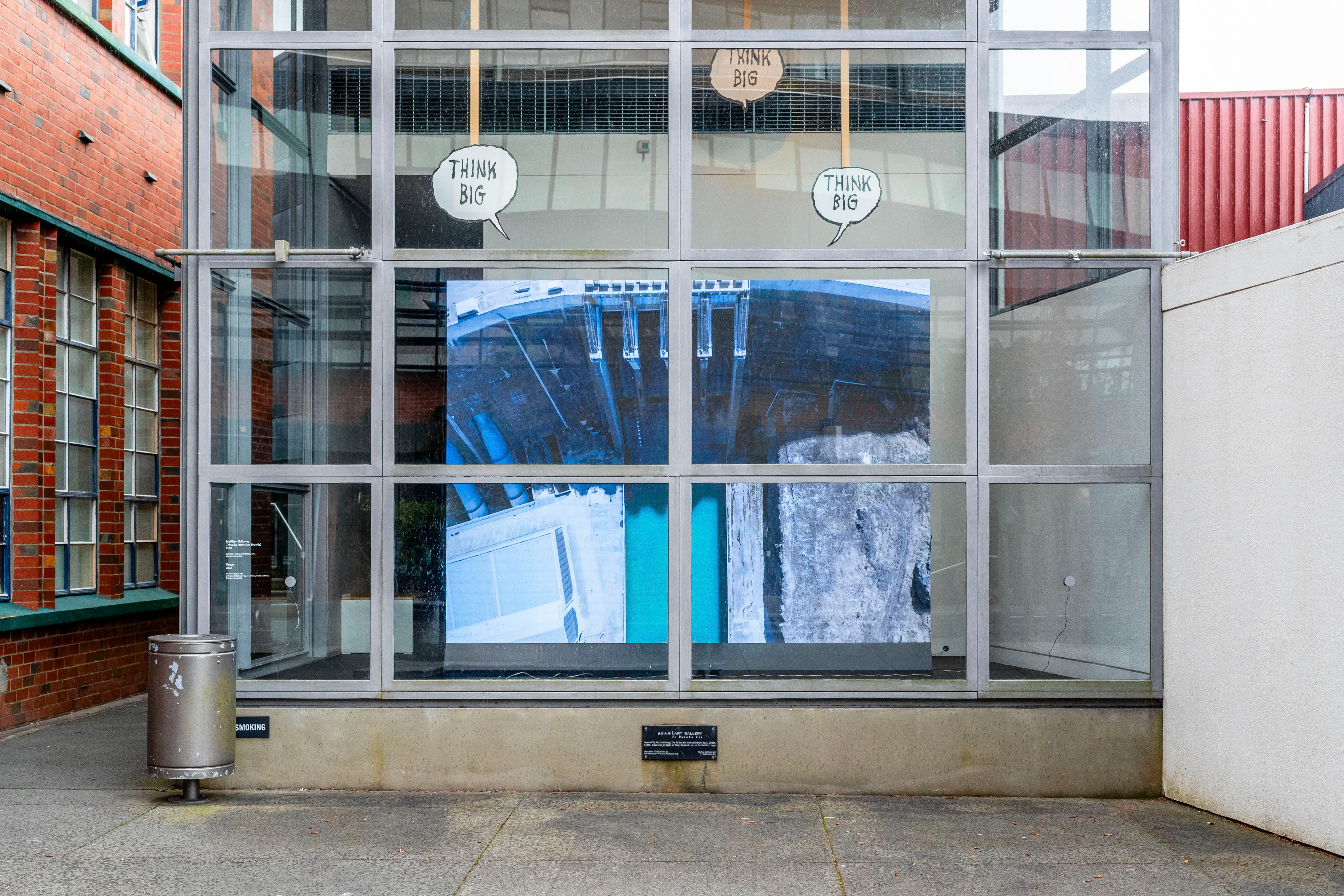
About Quishile Charan
Indo-Fijian craft and social practitioner, researcher, writer and critical theorist Quishile Charan approaches craft as a science-fiction practice of building new worlds from the seeds of reality. As a descendent of Girmit (indentured labour)—part of a history and present in which autonomy was/continues to be denied to her people—Quishile holds close a core set of anarchist—anti-colonial, anti-institution, anti-authority—values.
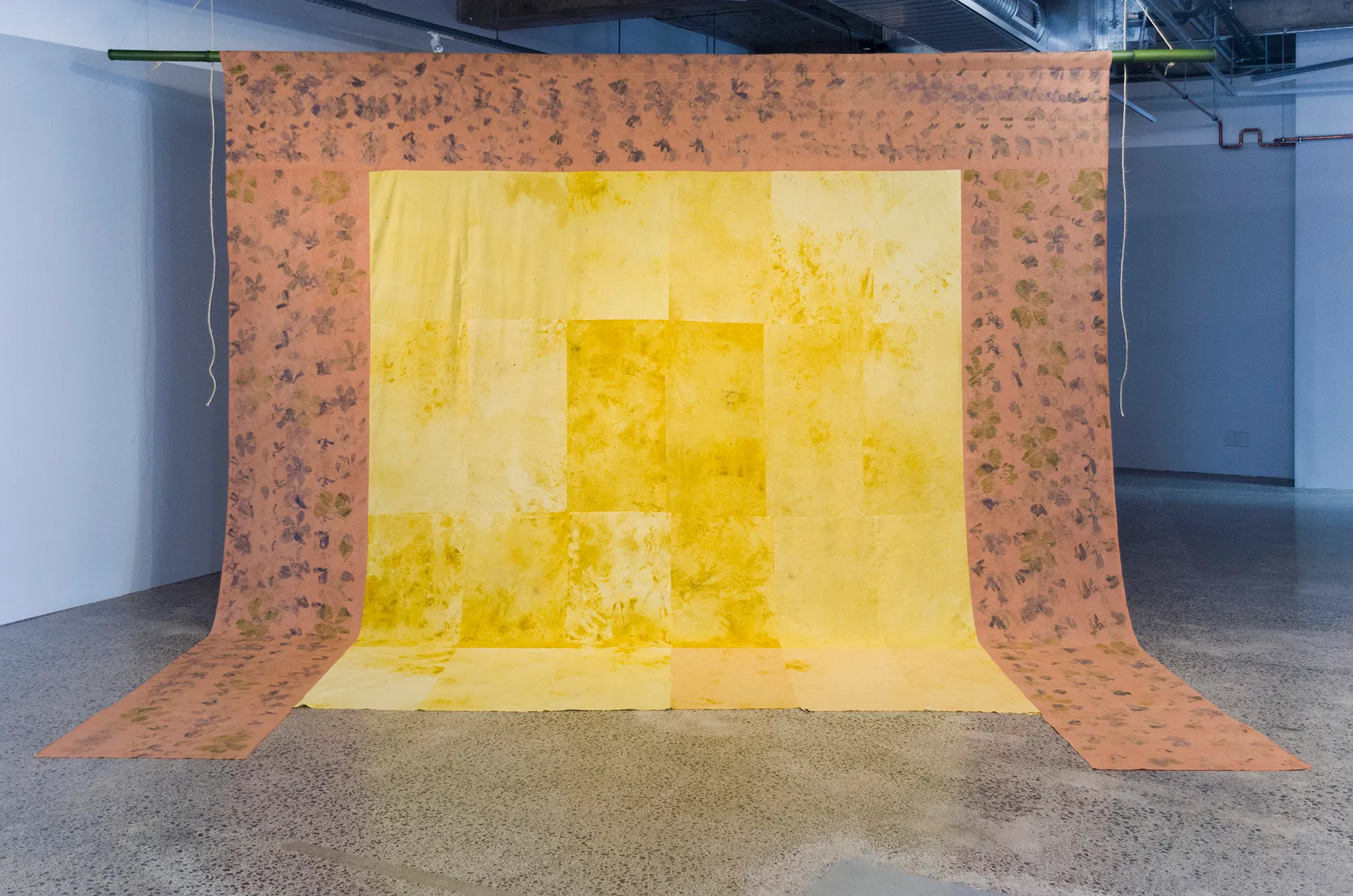
In her experimental, relational pursuits, Quishile expresses these values while seeking to form different visions of home with her own hands. Melted into Indo-Fijian gardening, cooking and living, it’s a family effort that prioritises the anti-colonial work of nurturing and caring for each other outside of Western hegemony. Quishile’s practice cannot function without the people in her life. A lot of her work lies in these relationships—choosing her family, holding them in the fabric of community and moving beyond historical systems of harm.
Quishile has an MVA from Auckland University of Technology, where she also completed a PhD in visual arts. She has exhibited at institutions including Artspace Aotearoa, Tāmaki Makaurau; SAVVY Contemporary, Berlin; and Kunsthalle Wien Museum. You can find Quishile working at her whare/ghar, which she shares with her chosen family in Aotearoa, making tarkari for loved ones, deep in talanoa while tending to her dye pots and sewing in the garage.
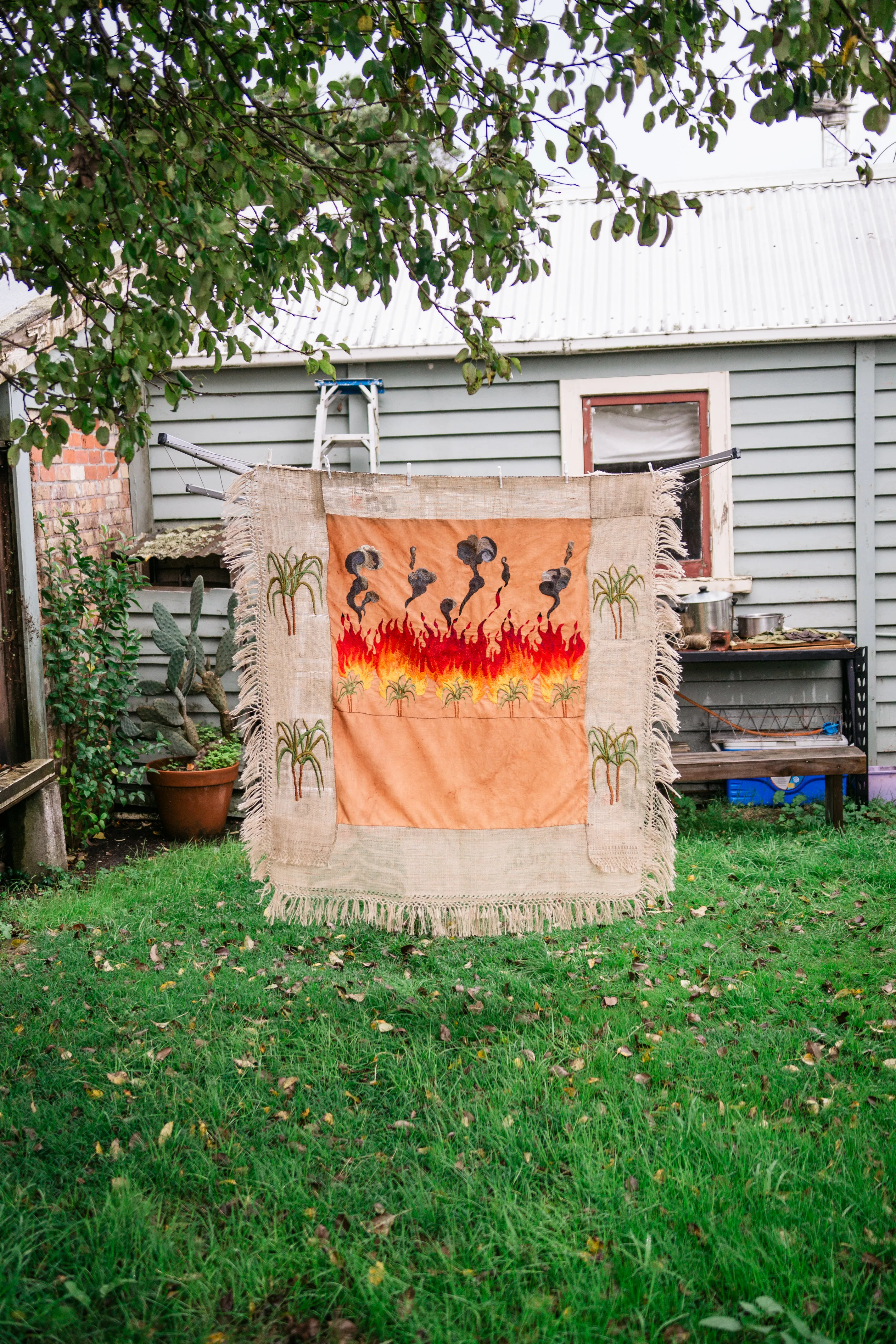
About the Summer School
Topics
The 2025 Summer School addressed three main topics:
“Other Easts”: Reexamining the East through a decolonial and pluralized lens, with a focus on the Arteast 2000+ collection in Ljubljana.
Monuments & Memory: Examining the post-WWII Partisan resistance monuments created in Yugoslavia, which commemorate the antifascist struggle and the socialist revolution. Many of these monuments, ranging in style from socialist realism to modernism, were damaged or destroyed after the changes in regime in the 1990s. The participants will reflect on how these monuments shape collective memory and identity.
Challenging the Western Canon: Exploring three museum collections that break away from linear, traditional art-historical narratives: Arteast 2000+, the collection and archives of the Belgrade Museum of African Art, and the collection of the art of non-aligned countries in Montenegro Museum of Contemporary Art. These collections offer diverse, non-linear explorations of art, politics, and history, and will allow the participants to broaden their perspectives on the legacies of the East and the Non-Aligned Movement.
Program Structure & Learning Outcomes
Over the course of the summer school, the participants travelled between Ljubljana, Belgrade, and Podgorica, spending two days in each city, with a mix of lectures, field trips, and hands-on workshops. In addition to engaging with the topics set out above, the participants :
♦ analyzed the lasting impact of antifascist monuments and their role in collective memory (Ljubljana, Jasenovac, Belgrade, Podgorica);
♦ gained critical insights into decolonial and pluralized art histories;
♦ experienced firsthand the challenges of curating non-Western collections and learn about curatorial practices through discussions with curators, artists, and researchers.
The program fostered a collaborative learning environment, encouraging the participants to actively engage in discussions, group projects, and site-specific activities.
The 2025 summer school provided an opportunity to learn from revolutionary ideas of solidarity also in shaping a future world, while also exploring the diverse and often underrepresented narratives of the East and the non-aligned world. Through immersive travel, direct engagement with local experts, and access to off-beat collections, participants gained a deeper understanding of the region’s complex cultural and political landscape. In addition, the workshops with local artists enabled them to engage in the creative processes of some of the most intriguing art practices in the region, based on research on power relations within the art system, various traditions of experimental and avant-garde film, and archives.
The workshop facilitators and speakers included: Rana Anani, Zdenka Badovinac, Nada Baković, Sezgin Boynik, Marina Čelebić, Anita Ćulafić, Doplgenger, Merve Elveren, Emilia Epštajn, FOKUS Grupa, Siniša Ilić , Sima Kokotović, Irena Lagator Pejović, Teja Merhar, Ahmet Öğüt, Bojana Piškur, Nemanja Radonjić, Natalija Vujošević, Ivana Zatežić and Beti Žerovc.
The program of courses will be published on the websites of the Moderna galerija , the Museum of African Art Belgrade, and the Museum of Contemporary Art Montenegro. Associated partners: Bunker/ Festival Mladi levi, Museum of Yugoslavia. All the courses will be held in English.
Participation by arts practitioners from Aotearoa New Zealand
All participants in the summer school are selected by the organisers (Moderna galerija, Ljubljana, Museum of African Art Belgrade and the Museum of Contemporary Art Montenegro) following an open call for applications (see below). In addition, the selectors offer one arts practitioner from Aotearoa not only a place at the summer school, but also nominate them to receive financial support from Office for Contemporary Art Aotearoa, up to a maximum of NZ$4,000, towards travel costs (flight and insurance) and accomodation. On receipt of an invitation for Quishile Charan to join the summer school, Tautai Contemporary Pacific Arts Trust granted Quishile a similar award towards travel costs (flight and insurance) and accomodation, through the new Artists Across Borders initiative, which is dedicated to supporting Pasifika Artists who have been invited to participate in international Contemporary Art projects.
Partners
The 2025 edition of the summer school was organized jointly by the Moderna galerija (Ljubljana), the Museum of African Art (Belgrade), and the Museum of Contemporary Art of Montenegro with associated partners Bunker/ Festival Mladi levi, Museum of Yugoslavia.
The organizational team of the Summer School included Bojana Piškur, Adela Železnik, Sanja Kuveljić Bandić, Emilia Epštajn, Natalija Vujošević.
The support for Matthew Galloway to join the 2025 summer school was made possible through a private donation made to the Office for Contemporary Art Aotearoa for this project.
The support for Quishile Charan to join the 2025 summer school was made possible through Tautai's Artists Across Borders initiative which was launched this year.
Dr Olivia Laita, Operations Director at Tautai commented: "This is our first year launching our Artists Across Borders initiative, which is dedicated to supporting Pasifika Artists who have been invited to participate in international Contemporary Art projects. Often, artists need support from multiple sources to fulfil one project and Artist Across Borders is just that, a top up fund that can make a significant difference. To date, we are proud to have supported three exceptional recipients, including Quishile Charan. Her international project stood out as both compelling and rare. The strength of her application, combined with her remarkable track record, made her a clear and deserving recipient of this support. We look forward to hearing all about it on her return!"
